solution Use Case
DataMiner User-Definable APIs / Webhooks
Cloud
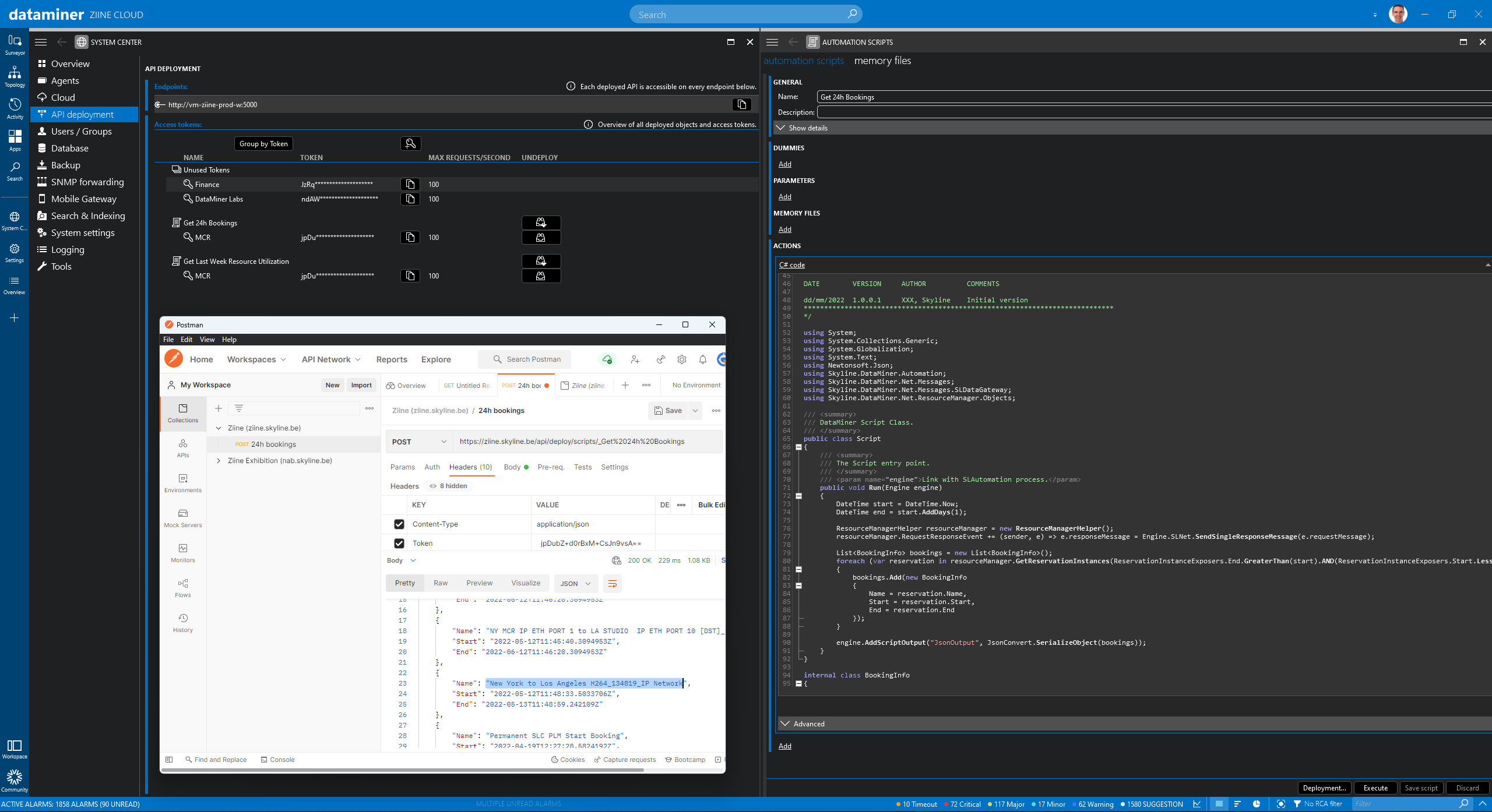
Check out this use case to learn how the DataMiner user-definable APIs and webhooks can help you create RESTful APIs on the fly, tailored to your use case. All you need to do as a DevOps engineer is create or select an Automation script and with a few clicks you can publish that script as RESTful API. DataMiner provides an API endpoint and manages the tokens to authenticate with any third-party system in a secure and easy manner. In this example, DataMiner manages live contribution bookings within an MCR environment. The bookings within the next 24 hours are shared with an external billing system via a simple API call.
USE CASE DETAILS
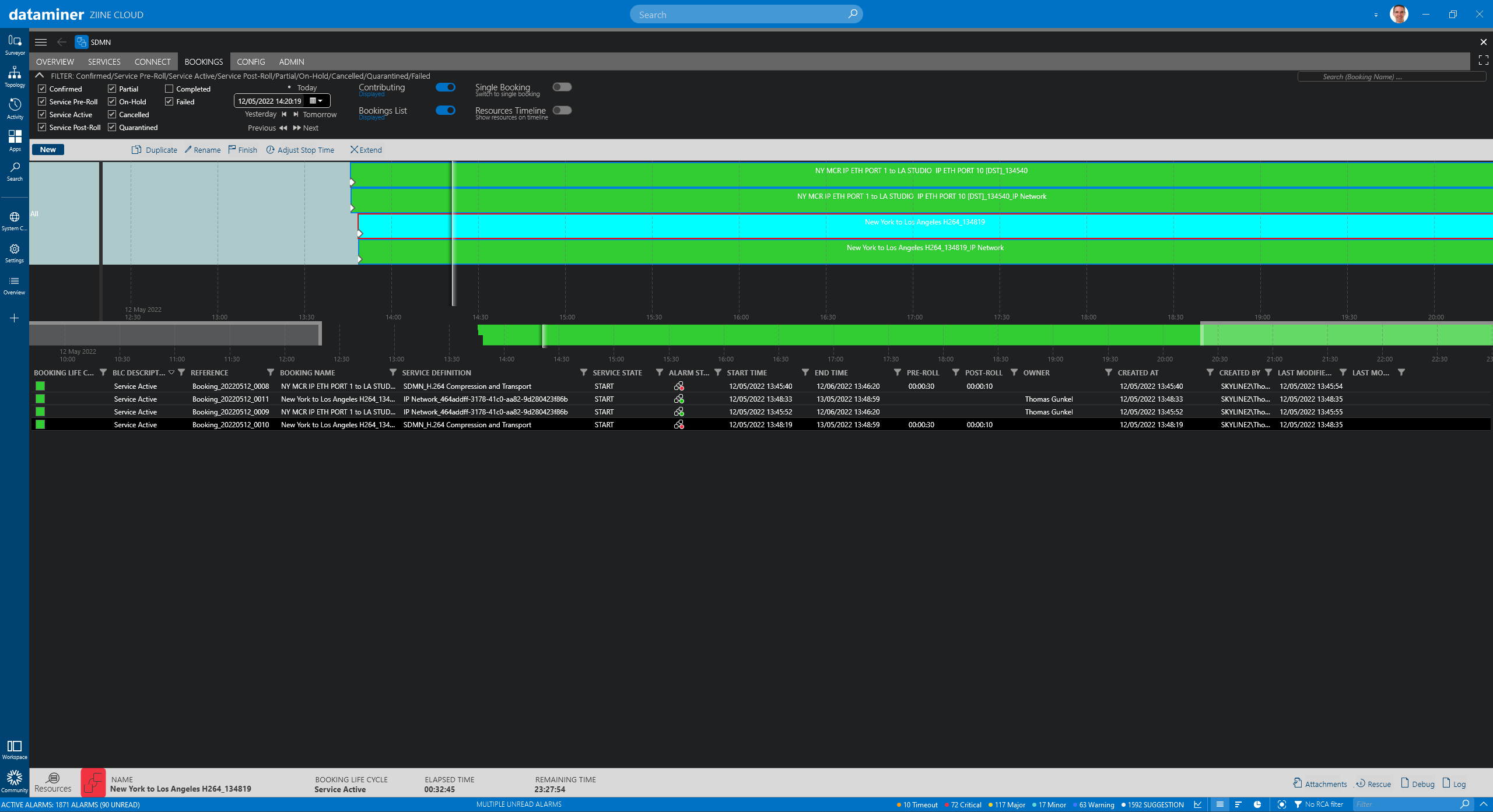 This screenshot shows the list of active bookings managed and orchestrated by DataMiner operators.
This screenshot shows the list of active bookings managed and orchestrated by DataMiner operators.
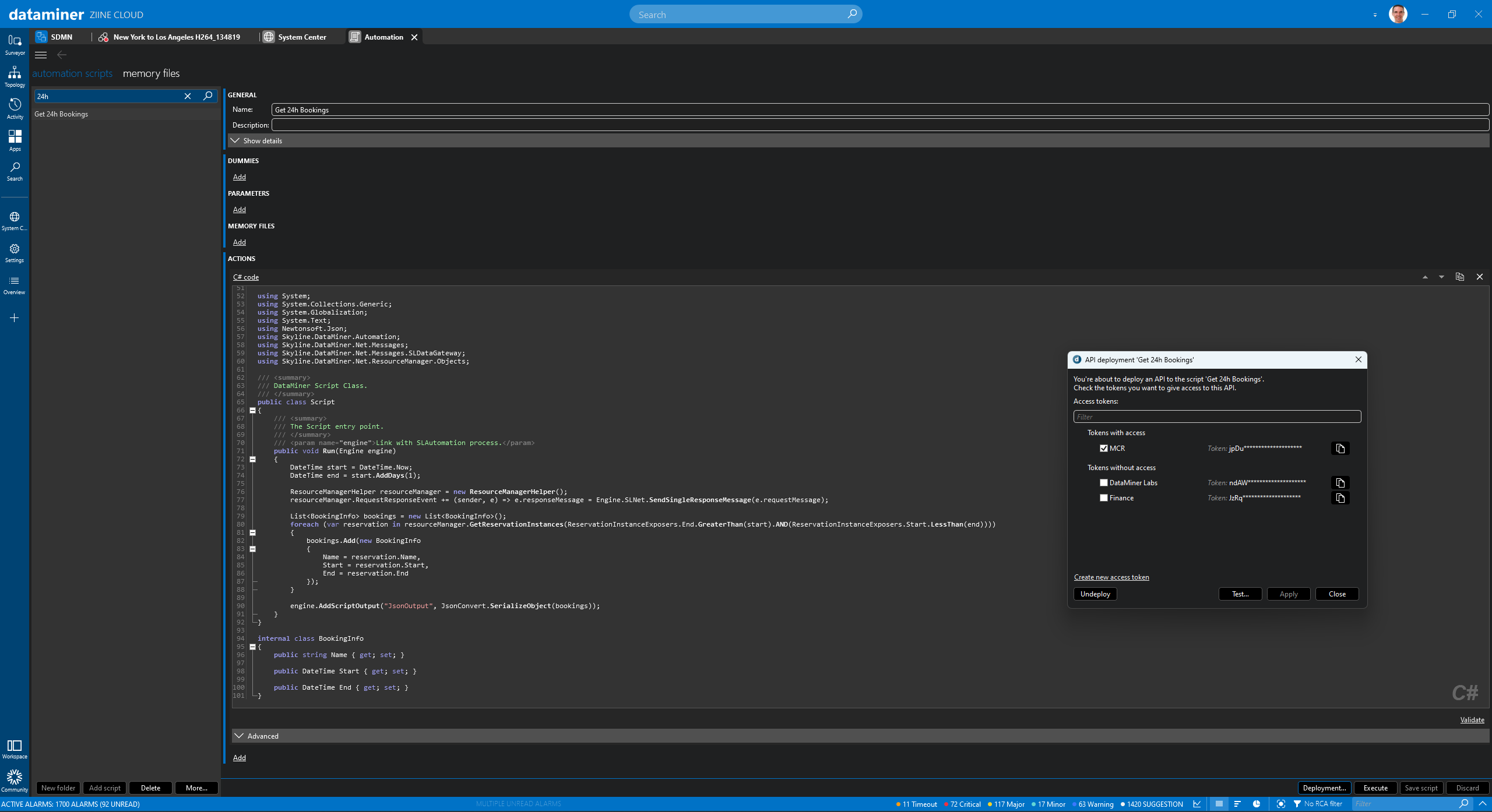 Now let's create our own API: As a DevOps engineer, you create a DataMiner Automation script to retrieve all bookings within the next 24 hours. Once your script is ready, click the Deployment... button to create your user-definable API and attach one or multiple tokens with your script.
Now let's create our own API: As a DevOps engineer, you create a DataMiner Automation script to retrieve all bookings within the next 24 hours. Once your script is ready, click the Deployment... button to create your user-definable API and attach one or multiple tokens with your script.
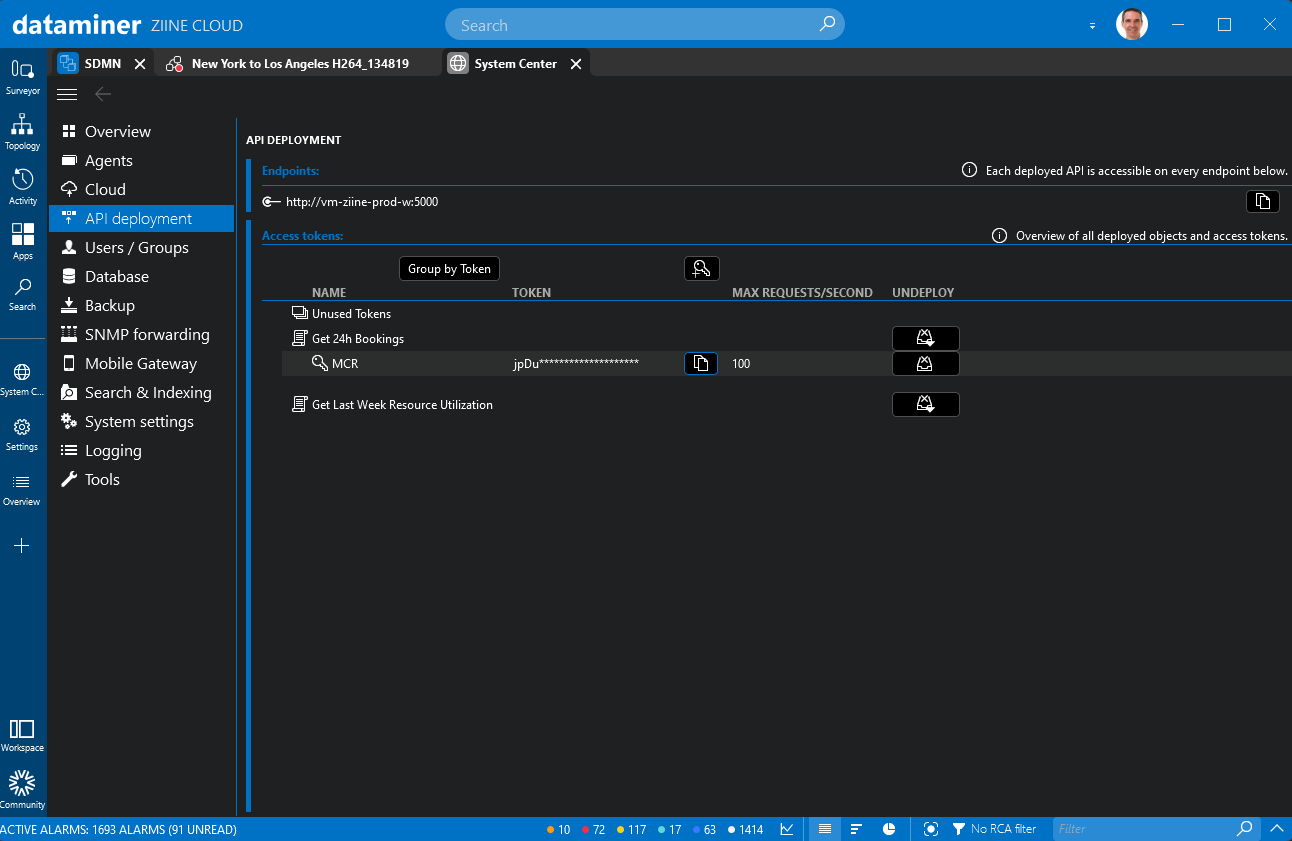 Tokens and API endpoints are managed in the DataMiner System Center, all via an easy-to-use graphical user interface.
Tokens and API endpoints are managed in the DataMiner System Center, all via an easy-to-use graphical user interface.
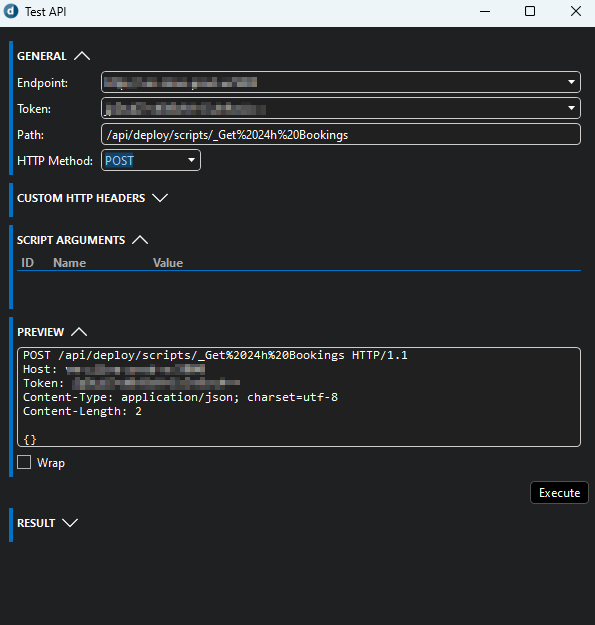 Before you publish the API, you can test the API up front with the built-in tool.
Before you publish the API, you can test the API up front with the built-in tool.
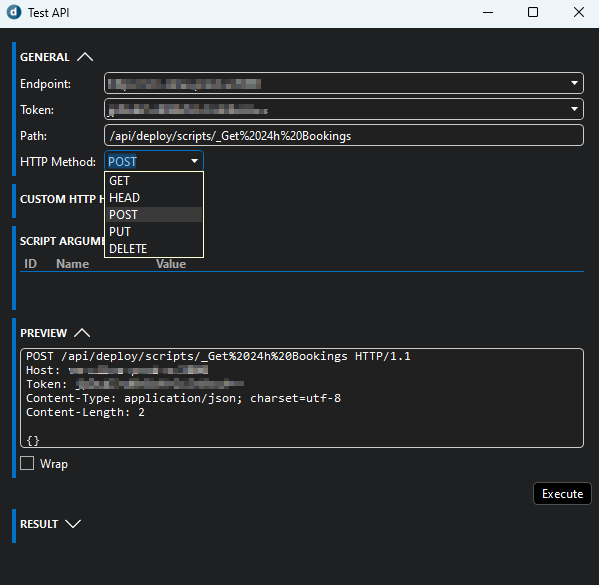 DataMiner user-definable APIs support common HTTP methods like GET, HEAD, POST, PUT, and DELETE.
DataMiner user-definable APIs support common HTTP methods like GET, HEAD, POST, PUT, and DELETE.
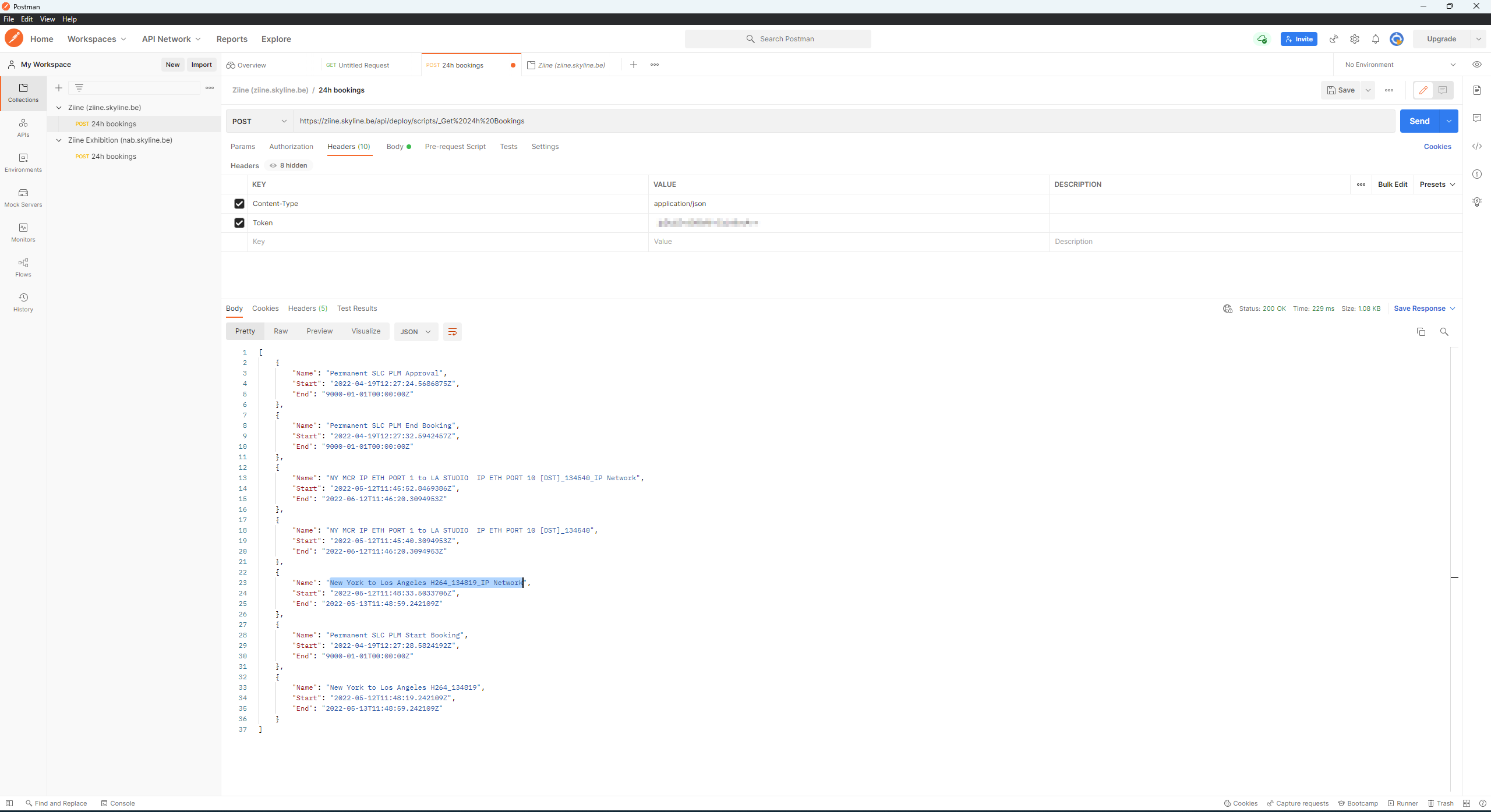 The billing system is represented by Postman. A single HTTP POST call together with the token we assigned before is all that's needed. DataMiner will report back all bookings within the next 24 hours with name, start time, and stop time, in an easy-to-read JSON format. Wondering how to use this new feature? It is currently in soft launch and requires DataMiner 10.1.6 as a minimum version. For more information about soft-launch options, click Resources in the Dojo header bar, scroll to the Release notes section and click "Soft-launch options".
The billing system is represented by Postman. A single HTTP POST call together with the token we assigned before is all that's needed. DataMiner will report back all bookings within the next 24 hours with name, start time, and stop time, in an easy-to-read JSON format. Wondering how to use this new feature? It is currently in soft launch and requires DataMiner 10.1.6 as a minimum version. For more information about soft-launch options, click Resources in the Dojo header bar, scroll to the Release notes section and click "Soft-launch options".